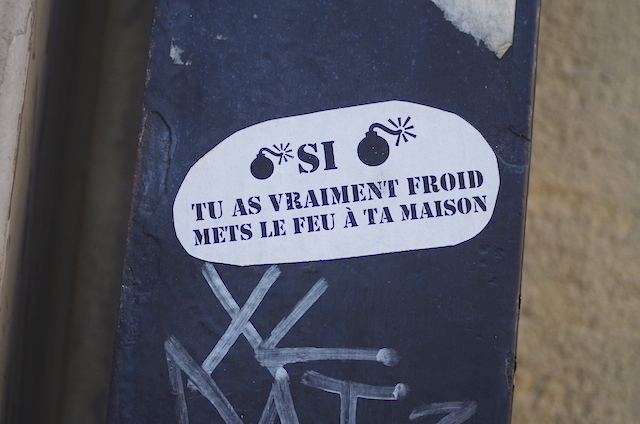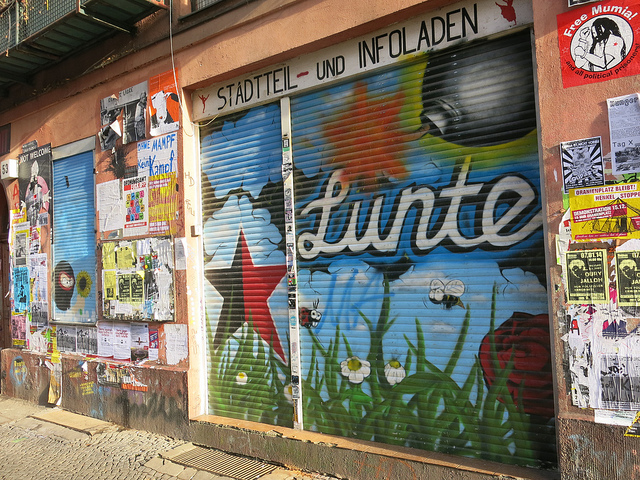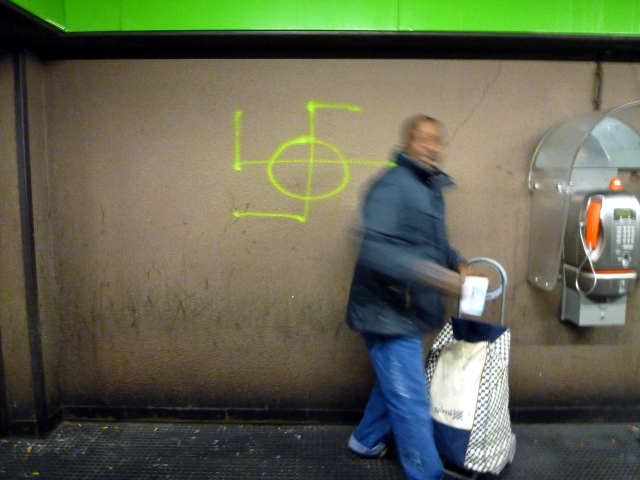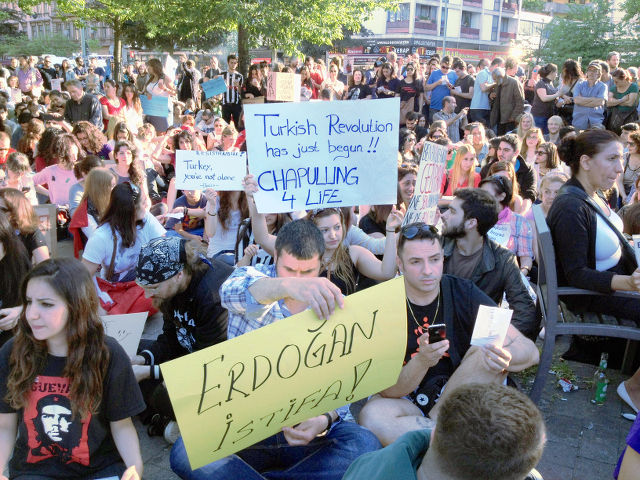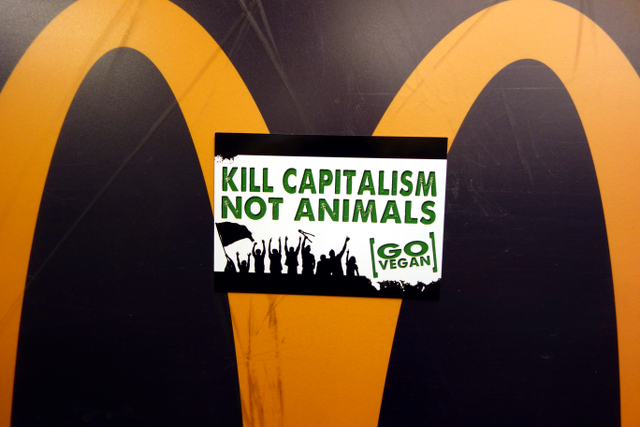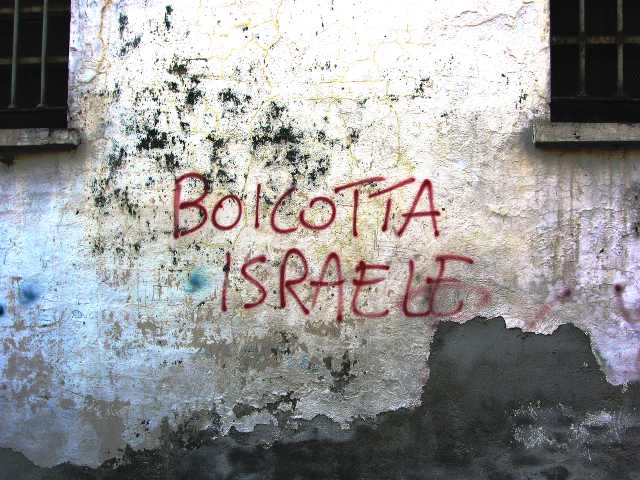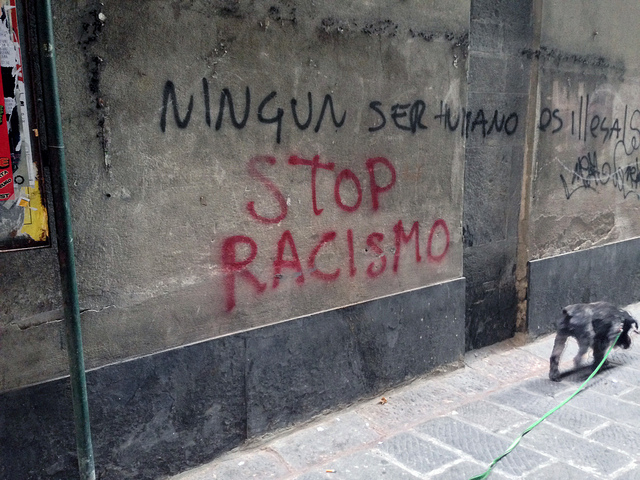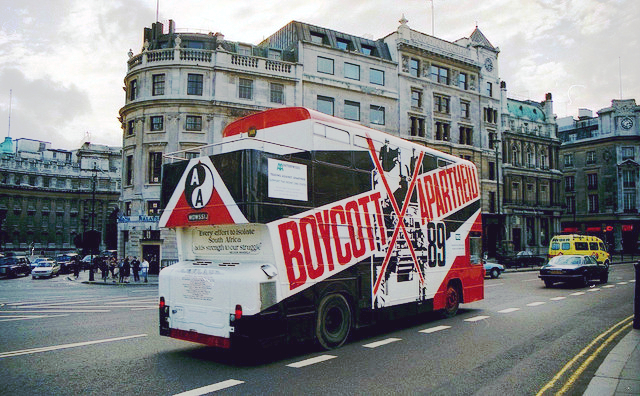In a world where the reality principle has largely been conflated with the totalizing logic of capital, the most powerful messages may be those that repudiate common sense. Consider this provocative sticker from Brussels, one of a series popping up around the city: “If you are really cold, set fire to your house.” Like the Zen koans it resembles, this counter-intuitive advice has the potential to turn one’s thinking inside out. (More…)
Author: RandomizerMost progressive periodicals emphasize words over images. Not Souciant. Randomizer is a column devoted to our love for political visuals. Collectively-authored by Souciant’s editorial staff, wherever they are. Including the kitchen.
Most progressive periodicals emphasize words over images. Not Souciant. Randomizer is a column devoted to our love for political visuals. Collectively-authored by Souciant’s editorial staff, wherever they are. Including the kitchen.
“We can’t fire them.” For anyone who has ever worked in Italy, the complaint is a familiar one. Often proffered to British and American employees, who are used to working with at-will type contracts, where staff can be let go on a whim, there’s an air of “Why can’t we be more like you?” to the declaration, as though a lack of job security is a more natural, albeit desirable state of affairs. (More…)
Most Americans who walk around Berlin are shocked. Graffiti is everywhere: storefronts, walls, and even the sides of entire buildings. They find it surprising. After all, this is the type of thing that was crushed by aggressive policing in cities like New York during the 1980s and 1990s. (More…)
At first, you don’t even notice the pattern. You wander the streets of this city, looking for subjects to photograph: a political poster here, a billboard there, and, down the block, an impressively tagged stretch of wall. But then you notice, like Oedipa Maas in Thomas Pynchon’s The Crying of Lot 49, when she starts seeing muted post horns everywhere, that one message cries out, over and over: “Bored.” (More…)
Multiculturalism isn’t an abstraction. It’s about people of different ethnic backgrounds, living together, as equals. Predicated on the idea that in an increasingly globalized world, governments must develop policies that encourage tolerance and foster integration. Initially associated with Canadian immigration policy, over the last half century, the term has become a synonym used to describe the ethnic transformation of European society. (More…)
It should have been a meme. For several months, at least, the news media could not put it down. First invoked in 2011, in reference to the 15-M movement protesting the Spanish government’s inept handling of the economic crisis, the term ‘Indignados’ became a media catch-all, used to describe European leftists, critical of Brussels-mandated austerity policies. (More…)
They came as guest workers. They came as manual laborers. They came to fill a labor shortage. You’ve heard it all before. It’s the story of Turkish immigration to Germany. The most popular one, that is. But hardly the most complex of accounts. One which, only reflects German government policy, to fuel the country’s post-war reconstruction. Having suffered nearly 4 million casualties during WWII, Hitler’s army had drained the country of its workforce. (More…)
There aren’t many bright spots in German history. Even the nation’s most worthy achievements are overshadowed by its many misdeeds. But this stigma does have a positive side. Because Germans remain the standard-bearers for two-dimensional villainy, they’re more willing than most to permit button-pushing discourse. The legacy of the Weimar Republic also helps. (More…)
“I don’t like Palestinians,” the guy making my döner said. “They’re too conservative.” Considering how much the Turkish government has championed their cause in recent years, the statement came as a surprise. That is, if you believe that every Turk ought to think like Recep Tayyip Erdoğan. Not in Berlin. Few immigrant communities in Germany’s capital city are as candid about their dislike of their ancestral country’s leadership. (More…)
Daft Punk are playing in the background. A young couple is nibbling on croissants, speaking to one other in French. My father brings me a cappuccino from the bar, with a Lavazza advert on the cup. It tastes like the real thing. I down it in two gulps. As though on cue, my stepmother looks at me and says, “You’d be forgiven for thinking you were in Europe.” (More…)
London gets too much credit. Whenever right-wing Israel advocates complain about hotbeds of Palestinian solidarity politics, they look no further. Perhaps its because the British capital is guilty as charged. Or maybe it’s due to a fear of finding out how widespread support for the Palestinian cause actually is, throughout western Europe. (More…)
From Pretoria to Peoria, the whole world is in mourning. For a one-time revolutionary leader from South Africa, that ought to say something. Not just about his political achievements, in helping end his country’s hated Apartheid regime. Rather, what Nelson Mandela’s breakthroughs meant to persons abroad, with little to no immediate stakes in his victories. (More…)
